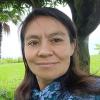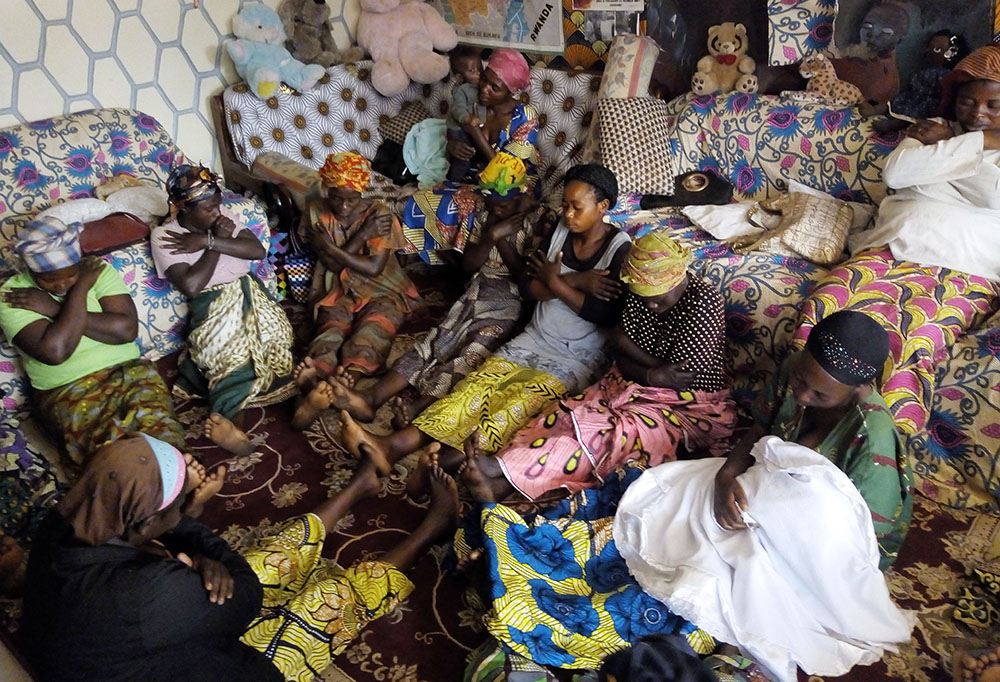
A group of women survivors in a therapy group at the Tulizeni Center in Goma, Democratic Republic of Congo (Courtesy of María de Lourdes López Munguía)
Editor's note: Global Sisters Report's new series, Hope Amid Turmoil: Sisters in Conflict Areas, offers a look at the lives and ministries of women religious serving in dangerous places worldwide. The news stories, columns and Q&As in this series will include sisters in Ukraine, Nigeria, Kenya, Sri Lanka, Nicaragua and more throughout 2023.
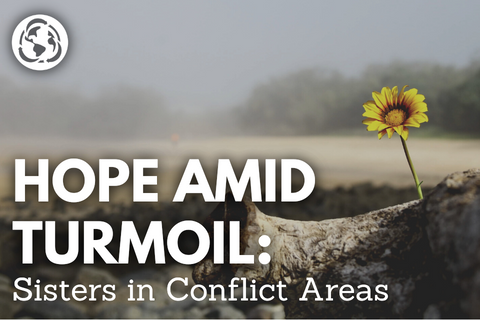
The missionary life is a continuous process of incarnation in which a part of me remains with the people to whom I am sent and a part of the people remains in me. There are experiences that mark me deeply and fill my heart with names and stories. To quote Pedro Casaldáliga:
At the end of the road they will tell me: "You've lived? You have loved?"
And I, without saying anything, I will open the heart full of names.
In December 2019, I arrived in Goma, Democratic Republic of Congo, in the east of the country. There, people have lived in constant tension since the displacement of the Rwandan population by the genocide. Goma has been a place of welcoming refugees from conflicts that end and start over.
It is in this reality where God accompanies me, and for them I consecrate myself (John 17:19).
One of our sisters had begun to accompany women survivors of the sexual violence that comes with armed conflicts, and realized the number of vulnerable boys and girls, orphaned, abandoned on the streets, sexually abused girls and ex-soldiers. That is why she founded the Tulizeni Center, which welcomes children and women who survive these realities.
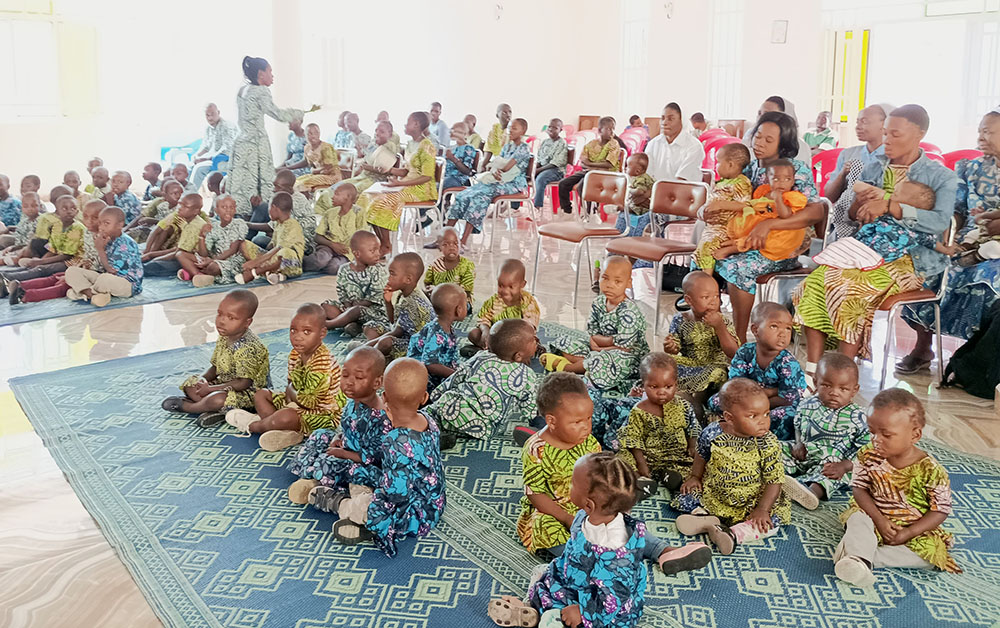
A Mass on Jan. 6 celebrates the founding of the Tulizeni Center in Goma, Democratic Republic of Congo. (Courtesy of María de Lourdes López Munguía)
Here, I have had the grace of accompanying some women who have lived terrible experiences — sexual violence linked to the situation of instability, to the fratricidal war — and women who are revictimized by their own families. We have cried together with them; we have shouted anger and impotence.
I have stayed with them on their Holy Saturday, opening my ears and my heart to allow them to tell their stories over and over again until they begin to re-know and re-create themselves. We have danced because it is in dance that these women try to express their pain, their deaths and finally begin to live again.
As a psychologist and spiritual companion, I feel deeply called to accompany people on their personal journeys — usually, for me, women who have suffered sexual violence. I do that from my formation, but much more as a call from God.
It is true that each person I accompany leaves me with new wisdom, makes me re-know myself once again, from the shared pain and from resilience that is generated in the love required for deep listening.
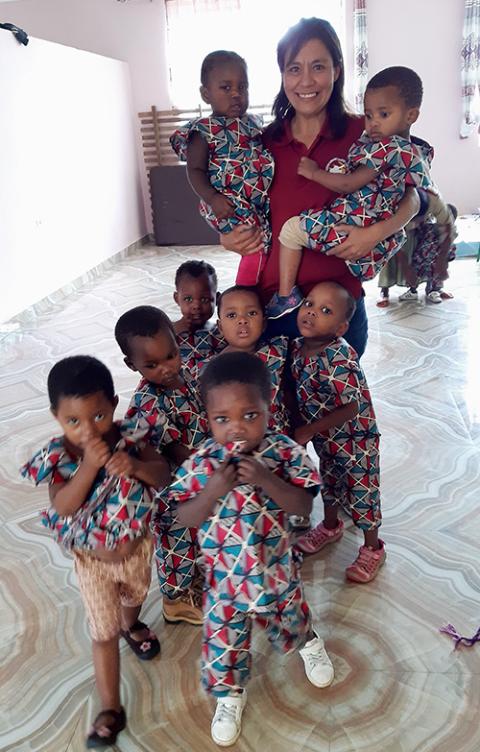
Franciscan Missionary of Mary Sr. María de Lourdes López Munguía with preschoolers at the Tulizeni Center in Goma, Democratic Republic of Congo (Courtesy of María de Lourdes López Munguía)
In another sense, the boys and girls that God has entrusted to our care at the Tulizeni Center have awakened in me a sense of motherhood that I had not experienced before, knowing that I was responsible not only for feeding and dressing them, but above all for exercising such an essential role as emotional bonding, and opening a space for listening and welcoming so that they too can retell their stories and heal. Certainly, the little ones have an incredible ability to rebuild themselves.
Last October, the war once again gained momentum in view of this year's presidential elections and political-economic interests in the region. At first, I faced fear — a different fear because it is not the fear of losing my life, but fear for the safety of the children. I have discovered in them this great trust in God that allows them to pray with all their being.
In short, in the midst of this town to which we are called, we live together with our people, with insecurity and hope.
As I write this, the rebels have not reached our city of Goma yet, but whenever they approach, the population is afraid. Nevertheless, because the people need to live, they continue struggling to survive because of their families. At the end of the day, we witness how life and hope hold them one day at a time.
A few weeks ago, as a community, we went to visit a refugee camp that is located less than a kilometer from our community. The living conditions are shocking: There are more than 7,000 families living in small shacks made of canvas and sticks, without access to electricity and little drinking water delivered every day.
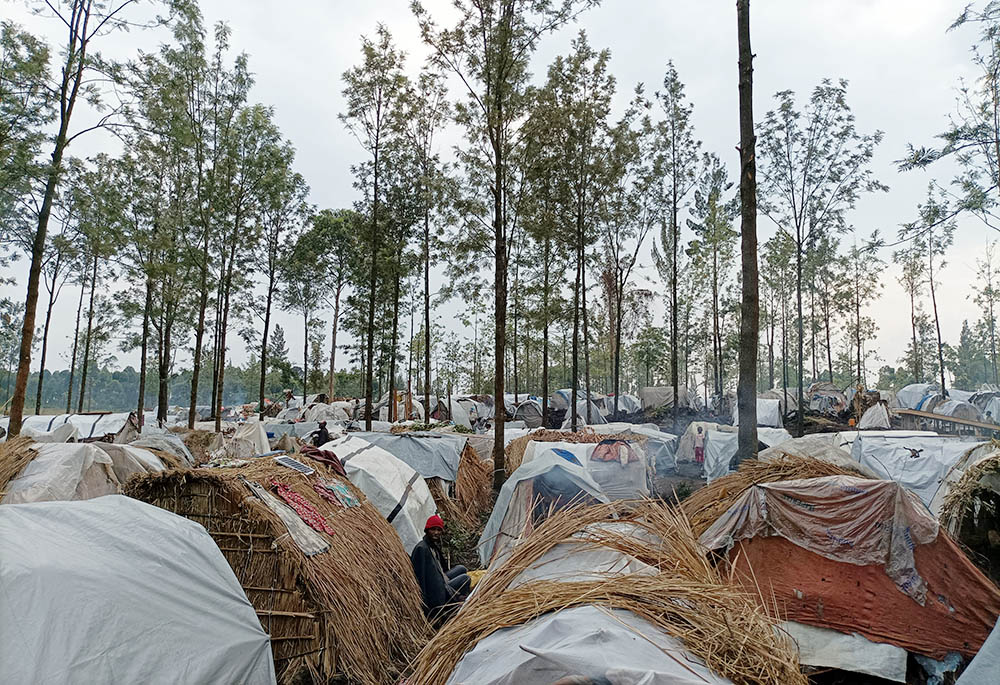
A refugee camp in Rutshuru, Democratic Republic of Congo (Courtesy of María de Lourdes López Munguía)
I am convinced that God contemplates through our eyes the pain of his people, the hunger of his sons and daughters. They are images that remain engraved on my retina and in my heart — and these images do not leave me indifferent. It hurts deeply to see babies and children crying for lack of food, and already in different stages of malnutrition.
Here I am.
Yes, here I am, and I am not saying it as an affirmation, but rather because each day I'm becoming aware of the depth of the incarnation of God in this town and in me.
Here I am with my story, with my failures and with all the ways God is calling me.
Here I am, in a deep moment of self-reflection, allowing myself to contemplate this reality through various prisms and find that it is our wounded humanity that prevents us from finding love and reconciliation.
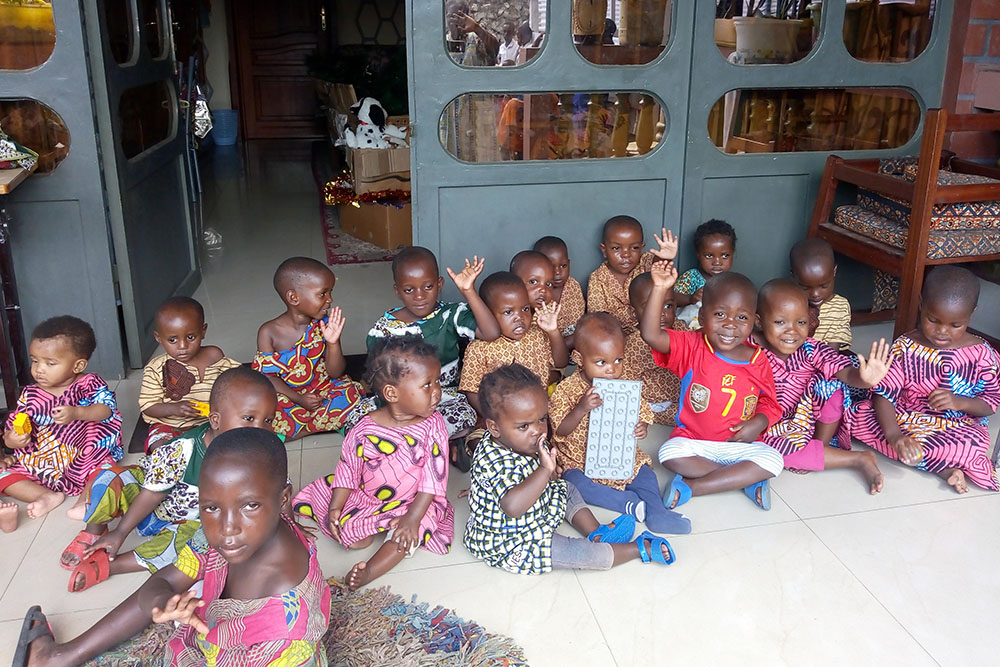
Some of the children that lived with the Franciscan Missionaries of Mary in their former residence in Goma, Democratic Republic of Congo (Courtesy of María de Lourdes López Munguía)
Here I am, in silence, because my throat has run out of voice, because it is time for the survivors to take up their voices again to seek and find justice.
Here I am, trying to listen: listen to God in the silence of each morning to discover what he is asking of us; listen to God's people, their cries, their anguish, their hopes; listen to the boys and girls who are in the center and who have already suffered enough.
Here I am, rediscovering God's invitation to "maternar" (mothering) in this movement to give life and to care for the life in the midst of death.
So, living in this sacred land and witnessing the visit of Pope Francis has been a kairos moment. Listening to his words — "Your tears are my tears; your pain is my pain" — gives a new impetus to our presence in the midst of these people, and we have felt that the world has heard what had been silenced so many times.
Advertisement
If today I would ask myself, how has this experience in Congo transformed me? — my first response is silence, a silence full of lives, names, stories; a silence that I find at dawn and that is a stubborn hope that does not allow death and war to win in the heart.
It is that same silence that is engendering a new way in my prayer, this letting myself be mothered by God, letting God cuddle me, allowing myself to cry in his arms so that I can later comfort and console his people.
Before, I said that there are images that are recorded on my retina. There are also images of hope, of unconditional love and gratitude that in this time I have the ability to see, welcome and embrace from my own profound experience of depending on God.
Certainly, we know that for the moment our lives are not in danger, but the lives of the people that God has given us are at risk. It is God's mercy that moves us to be signs of hope in the tissue of this humanity.
